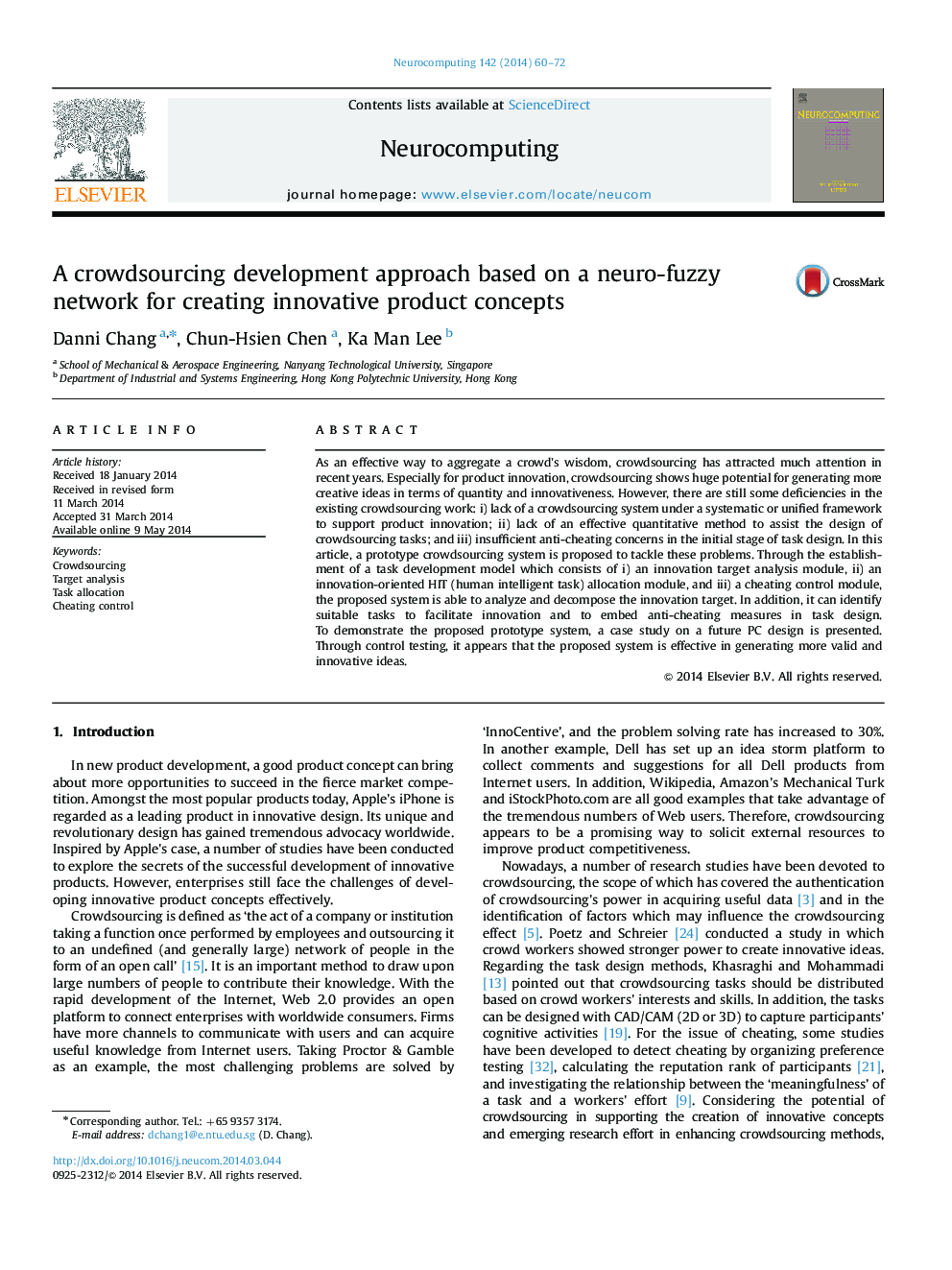| Article ID | Journal | Published Year | Pages | File Type |
|---|---|---|---|---|
| 412260 | Neurocomputing | 2014 | 13 Pages |
As an effective way to aggregate a crowd׳s wisdom, crowdsourcing has attracted much attention in recent years. Especially for product innovation, crowdsourcing shows huge potential for generating more creative ideas in terms of quantity and innovativeness. However, there are still some deficiencies in the existing crowdsourcing work: i) lack of a crowdsourcing system under a systematic or unified framework to support product innovation; ii) lack of an effective quantitative method to assist the design of crowdsourcing tasks; and iii) insufficient anti-cheating concerns in the initial stage of task design. In this article, a prototype crowdsourcing system is proposed to tackle these problems. Through the establishment of a task development model which consists of i) an innovation target analysis module, ii) an innovation-oriented HIT (human intelligent task) allocation module, and iii) a cheating control module, the proposed system is able to analyze and decompose the innovation target. In addition, it can identify suitable tasks to facilitate innovation and to embed anti-cheating measures in task design. To demonstrate the proposed prototype system, a case study on a future PC design is presented. Through control testing, it appears that the proposed system is effective in generating more valid and innovative ideas.
